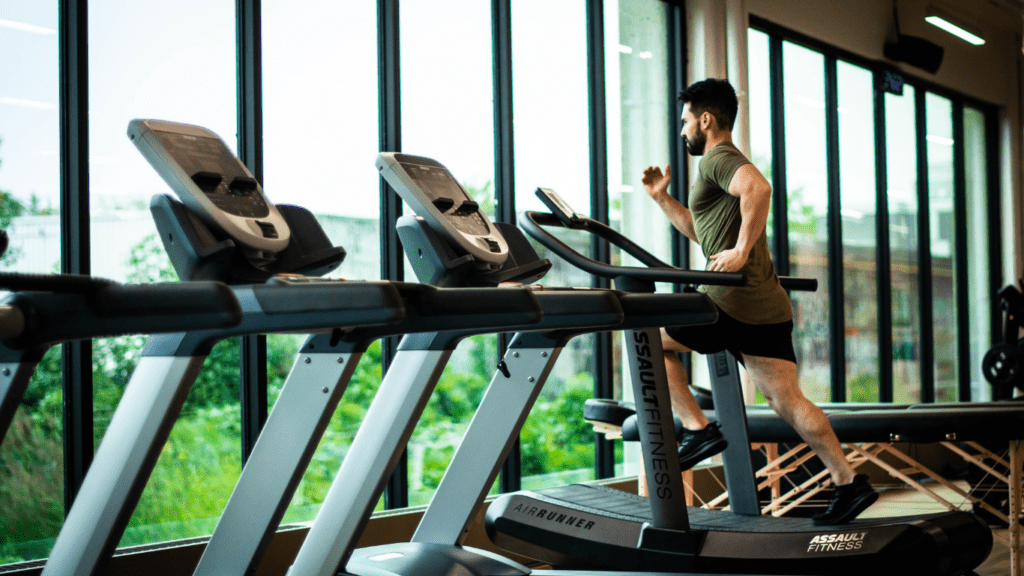Sleep is not just a time for rest; it’s a critical component of physical fitness and recovery. As someone who values peak performance, I understand the profound influence sleep can have on our bodies.
In this article, I’ll delve into the fascinating connection between quality sleep and optimal physical well-being. From muscle repair to hormone regulation, sleep plays a vital role in our body’s ability to recover and adapt to exercise.
As I explore the impact of sleep on physical fitness, you’ll discover how a good night’s rest can enhance your athletic performance and overall health. Let’s uncover the secrets that lie in the realm of sleep and its transformative effects on our bodies.
The Importance of Sleep
Sleep plays a crucial role in ensuring optimal physical fitness and recovery. As an essential component of overall health, adequate sleep directly impacts my performance as an athlete and my body’s ability to repair and recover from intense workouts.
It’s during sleep that my muscles undergo repair and growth, setting the stage for improved strength and endurance. The quality and duration of my sleep have a direct correlation with hormone regulation in my body.
Hormones like growth hormone and testosterone, vital for muscle growth and recovery, are primarily released during deep sleep stages. Therefore, prioritizing a good night’s sleep is not only essential for muscle repair but also for maintaining the hormonal balance necessary for physical well-being.
Research indicates that inadequate sleep can lead to decreased athletic performance, increased risk of injuries, and longer recovery times. As an athlete, recognizing the significance of proper sleep habits is key to maximizing training results and achieving peak performance levels.
By understanding and valuing the role of sleep, I can optimize my physical fitness journey and enhance my overall health and well-being.
Relationship Between Sleep and Physical Fitness
Sleep plays a crucial role in physical fitness, directly impacting muscle recovery, performance, and overall well-being. Let’s delve into how quality sleep enhances muscle recovery and influences athletic performance.
Enhanced Muscle Recovery
Quality sleep is essential for enhanced muscle recovery. During sleep, the body repairs and regenerates muscle tissues damaged during workouts. It’s in this restorative phase that muscles grow stronger and more resilient.
Adequate sleep duration and quality are vital to optimize this repair process, ensuring muscles are ready for the next training session.
Impact on Performance
Optimal sleep significantly impacts athletic performance. Sleep deprivation can lead to decreased reaction times, impaired coordination, and reduced endurance during physical activities. In contrast, sufficient sleep improves focus, alertness, and overall performance.
By prioritizing quality sleep, athletes can enhance their training effectiveness, recovery speed, and overall physical performance.
Sleep Deprivation Effects on Physical Fitness
Exploring the repercussions of sleep deprivation on physical fitness is crucial in understanding the detrimental impact it can have on athletic performance and overall well-being. Inadequate sleep not only impairs muscle repair and growth but also disrupts hormone regulation, significantly affecting an individual’s physical capabilities and recovery process.
Lack of sufficient sleep has been linked to decreased reaction times, impaired coordination, and reduced endurance. This compromised state can hamper an athlete’s performance, leading to subpar results during training sessions and competitions. The body’s ability to repair and regenerate muscle tissues is hindered by sleep deprivation, prolonging recovery times and increasing the risk of injuries.
Optimizing sleep quality and duration is essential for athletes looking to enhance their physical fitness and recovery speed. By prioritizing proper sleep habits, individuals can improve their focus, alertness, and overall performance.
Adequate rest during sleep is fundamental for the body’s repair mechanisms to function optimally, aiding in muscle recovery and supporting the body’s recovery processes after intense physical exertion.
Recommendations for Improving Sleep and Recovery
To enhance both physical fitness and recovery, I recommend implementing the following strategies to optimize sleep quality and overall well-being:
- Establish a Consistent Sleep Schedule: Maintaining a regular sleep routine is crucial for supporting the body’s natural sleep-wake cycle. Going to bed and waking up at the same time every day, even on weekends, helps regulate your body clock and improves the quality of your sleep.
- Create a Relaxing Bedtime Routine: Develop a calming pre-sleep ritual to signal your body that it’s time to wind down. Activities like reading a book, meditating, or taking a warm bath can help promote relaxation and prepare you for a restful night’s sleep.
- Ensure a Comfortable Sleep Environment: Optimize your bedroom for sleep by keeping it cool, dark, and quiet. Investing in a supportive mattress, comfortable pillows, and breathable bedding can significantly enhance your sleep quality and promote recovery.
- Limit Exposure to Screens Before Bed: Reduce exposure to electronic devices such as smartphones, tablets, and computers at least an hour before bedtime. The blue light emitted by screens can disrupt melatonin production, making it harder to fall asleep and negatively impacting your recovery.
- Watch Your Diet and Hydration: Be mindful of what you eat and drink, especially in the hours leading up to bedtime. Avoid heavy meals, caffeine, and alcohol close to bedtime as they can interfere with your sleep quality. Staying hydrated throughout the day can also help improve your overall sleep patterns.
- Incorporate Regular Physical Activity: Engage in regular exercise as part of your daily routine, but aim to complete vigorous workouts at least a few hours before bedtime. Physical activity can promote restorative sleep and aid in muscle recovery, but timing is key to avoiding any disruptions to your sleep cycle.
By incorporating these recommendations into your daily routine, you can effectively improve your sleep quality, enhance physical fitness, and expedite the recovery process. Prioritizing restful sleep is a fundamental pillar of maximizing athletic performance and overall well-being.


